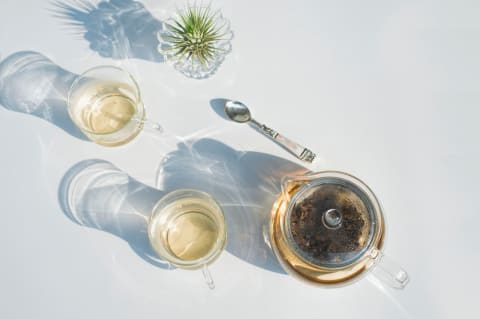Staring at a grocery store’s wall of teas can be intimidating.
There are so many options to scan before picking the one you will eventually ring through at the register.
Making your own tea is surprisingly simple - its like making a soup, really.

The only thing it’s crucial that you figure out is what ingredients you need.
Containing nearly a dozen antiviral compounds, it is also pain-relieving, antiseptic, and antioxidant.
Helps prevent and treats colds, sore throats, and inflamation of mucus membranes.

It also reduces pain and fever and has a mild sedative effect that encourages rest.
Echinacea (leaves and flower petals)- Anti-bacterial.
Garlic- Anti-bacterial, anti-fungal.
Contains several helpful immune-boosting compounds, including allicin, a potent, natural antibiotic.
Goldenseal- Anti-viral, anti-bacterial, anti-fungal.
It is both antiseptic and immune stimulating, increasing blood supply to the spleen.
Sage- Antiseptic, anti-bacterial.
Sooths sore throats, promotes good digestion, and helps ease menstrual cramps.
Cinnamon- Anti-bacterial, antiviral, antifungal.
Helps stop vomiting and relieve nausea, and increases restricted blood flow.
Clove- Antiviral, antifungal, antimicrobial, antioxidant, anti-inflammatory.
Helps fight infection and ease pain.
Lemon- Another rich source of vitamin C, squeeze some into your tea.
Chamomile- Anti-fungal, anti-bacterial, antiseptic, anti-inflammatory.
Lemongrass- Antibacterial, anti-inflammatory, anti-parasitic, antifungal.
Relieves digestive ailments and fluid retention, improves blood circulation, and dilates blood vessels.
Oregano- A general tonic and immune booster.
Rosemary- Antibacterial, antiseptic, antiparasitic, antifungal.
Good for the nerves and has a stimulating effect.
Tumeric- Antioxident, anti-imflammatory, antifungal, and anticancer.
It is a blood purifier, and helps lower blood sugar levels.